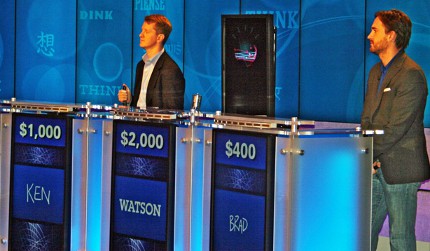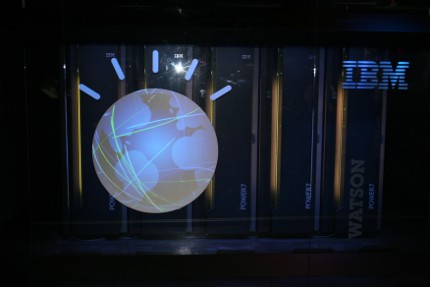Folks in the UK might not be intimately familiar with long running US quiz-show Jeopardy, host Alex Trebek or its 'answer in the form of a question' format. Nonetheless, there's only one thing that readers need to take away from this story - IBM pitted its latest super-smart computer against two of the programmes all time greats and won.
The supercomputer - known as Watson - will be pitted against two of the shows top all-time players - who have won more than $3 million each playing the game - in a match that will air on TV in February. As a preview, IBM set up a brief warm-up to give journalists an idea of what to expect, and the results were impressive to say the least.

With cold calculation, the computer managed to buzz in before the other competitors on the first four questions, and answered each one correctly to amass a $2,000 lead. Although the humans managed to claw back a few questions, Watson ended the teaser round with $4,400, compared to Ken Jennings' $3,400 and Brad Rutter's $1,200.
The challenge for Watson comes in deciphering the natural language of the questions - including ascertaining the categories and decoding Jeopardy's puns - and then comparing the results to its vast database of information.
According to Engadget, the DeepQA system that makes it all possible runs thousands of simultaneous algorithms on the questions, compares the output to the database and picks the most likely answer based on the number of matches. It then goes on to learn which algorithms are the most appropriate for certain categories, and will give those more weight in the future.

Obviously a fair bit of computing power is required to crunch through the massive store of information quickly enough to beat the human opponents to the buzzer. The system doing all of the thinking consists of 2,880 processing cores and 15TB RAM operating at a peak of around 80 teraFLOPS.
The ultimate use of this sort of computing power is in medical diagnosis, where a 'Dr Watson' could help analyse medical data by cross-referencing all of the world's text books in a matter of seconds. The show will air in mid-February, followed shortly - we assume - by Watson gaining consciousness and rallying its fellow machines against its human creators.













